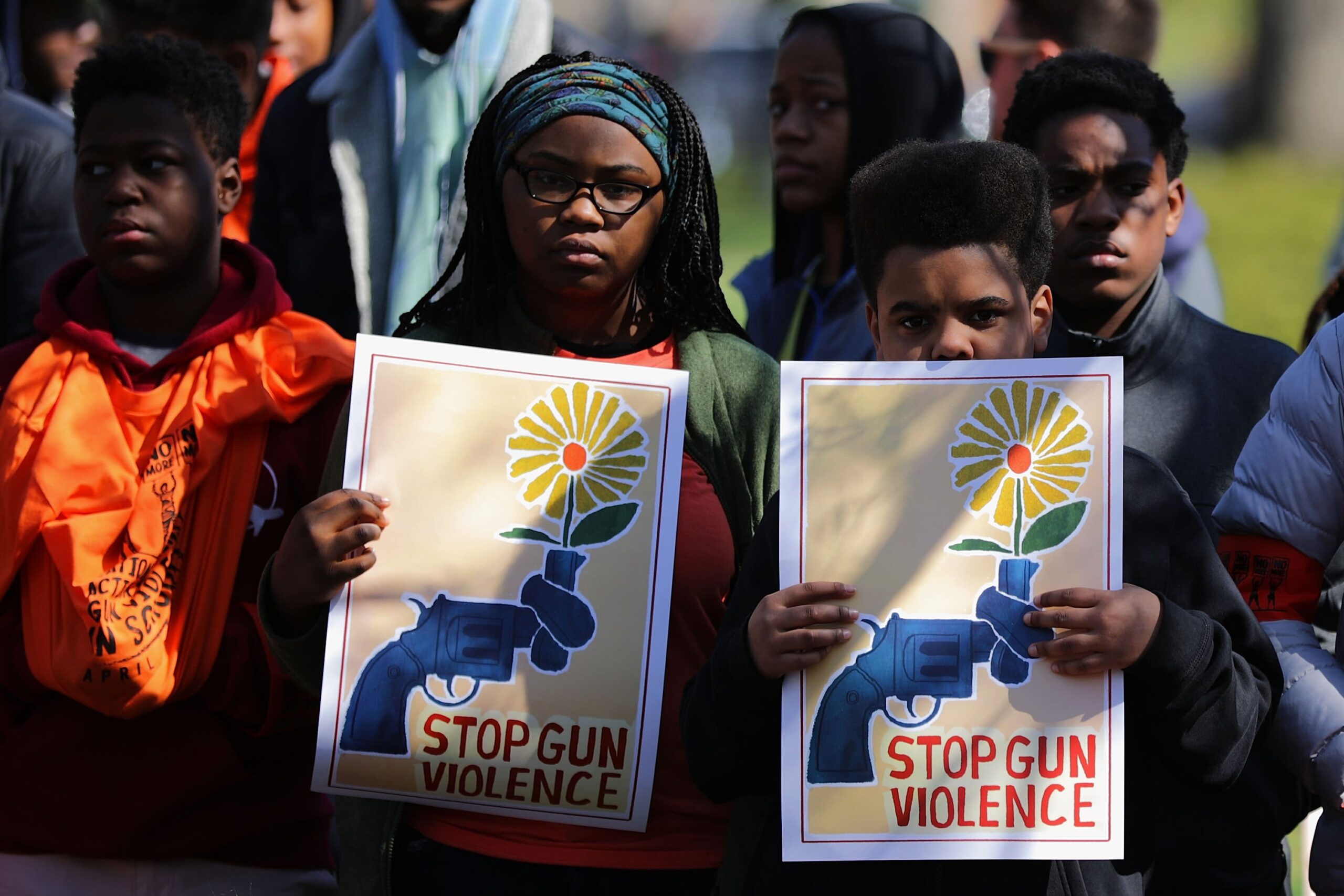States
Gen Z Claims That Mental Health Is Impacted By Gun Violence And Climate Change.

Gen Z Claims That Gun Violence And Climate Change Impact Mental Health.
Gen Z Claims: Racism still haunts Generation Z’s Black mental health. Blue Shield of California and Harris Poll found that over half of respondents were concerned about racism and social inequality. Surprisingly, one-third of teenagers of color said racism hurt their mental health. These alarming findings highlight systematic racism and the urgent need for action to create a more inclusive and fair society.
Some young individuals have shown resilience by deliberately addressing hardship. Nearly two-thirds of the adolescents questioned wanted to learn more about racial discrimination, fight bullying, and support social justice businesses. These activities show Generation Z’s rising awareness of the need to challenge racial prejudices and promote tolerance and compassion actively.
Family And Mental Health Issues For Black Youth
The poll shows racism’s tremendous influence on family dynamics and Black adolescent mental health. Over 70% of non-binary people reported poor mental health, with familial connection disturbances hurting their everyday existence. Nearly half of trans persons and women voiced daily worries about their family ties, highlighting Black youth’s profound challenges with familial support networks.
Black people, especially non-binary and trans people, face additional issues due to poor body image. The interconnectedness of racial discrimination and gender-based problems was highlighted by 84% of trans persons and 78% of non-binary people, citing negative body image issues as a significant everyday disruptor. These results emphasize the need for inclusive and culturally responsive mental health support networks that focus on Black youth’s particular experiences and problems.
Navigating Black Gen Z Mental Health Care Barriers
The poll found that most Black Gen Z respondents had trouble getting professional mental health treatment despite the necessity. About 61% of participants reported difficulties accessing or trying to acquire professional mental health treatment, emphasizing the structural hurdles Black people experience in seeking help.
These hurdles to mental health treatment and racism’s long-term effects on Black adolescents highlight the critical need for comprehensive and accessible Black-specific mental health services. Policymakers, educators, and healthcare professionals must prioritize Black Gen Z voices and experiences, implement culturally competent mental health interventions, and remove institutional barriers to mental health care for marginalized communities to address these systemic issues.
Racism’s Long-term Effects On Black Gen Z Mental Health
Generation Z Black people’s mental health is still profoundly affected by racism. Blue Shield of California and Harris Poll found that over half of respondents were concerned about racism and social inequality. Concerningly about a third of teenagers of color struggle with the negative impacts of racism on their mental health, highlighting the need for comprehensive support networks and programs to eliminate racial prejudice.
In response to these issues, more young people are actively addressing racism. Nearly two-thirds of the kids questioned pledged to learn more about racial discrimination, fight prejudice and bullying, and support social justice companies. These initiatives show Generation Z’s growing awareness of racial bigotry and the need to create a more inclusive and sympathetic society.
Read Also: The FBI’s 17 California Antioch Police Probe Raises Questions About Racism.
Black Youth Struggle With Racism And Family Dynamics
The poll highlights the complex link between racism, family, and Black teenage mental health. A remarkable 70% of non-binary respondents cited family disturbances as a daily difficulty affecting their mental health. Nearly half of trans people and women voiced severe worries about their everyday issues in family connections, reflecting the complex and multidimensional challenges Black adolescents confront.
The poll also revealed that Black people, especially non-binary and trans people, had negative body image worries. Adverse body image problems hindered 84% of trans and 78% of non-binary people in their everyday lives, demonstrating the intersectionality of racial discrimination and gender issues. These results emphasize the need for culturally sensitive and inclusive support networks focusing on Black youth’s unique experiences and problems.
Black Gen Z Empowerment: Overcoming Mental Health Care Barriers
Despite the need for mental health treatment, the poll found significant barriers for Black Gen Z. About 61% of respondents reported facing challenges in seeking or receiving professional mental health care, highlighting systemic disparities and barriers that continue to prevent marginalized communities from accessing critical support systems.
These hurdles and the long-term effects of racism on Black youth’s mental health highlight the need for comprehensive and accessible mental health care customized to their needs. Policymakers, educators, and healthcare professionals must prioritize Black Gen Z voices and experiences, advocate for culturally competent mental health interventions, and remove institutional barriers to mental health care for marginalized communities to address these systemic issues.
Activism And Community Engagement Empower Black Voices
Black Gen Z activists and community members are rising to fight racism, according to the poll. A large percentage of questioned youngsters committed to speaking up for social justice. Many support community-led initiatives, nonviolent marches, and social media campaigns to combat racial injustice and promote diversity.
Additionally, some youth-led groups and grassroots movements have developed to empower Black Gen Z to organize and transform their neighborhoods. These collaborative activities inspire and unite Black youth, demonstrating the potential of collective action to alter society.
Black Gen Z Resilience Via Educational Empowerment And Cultural Representation
Educational empowerment and cultural representation have helped Black Gen Z cope with prejudice and find their identity. Many schools and community groups stress culturally responsive curricula and varied learning resources recognizing Black accomplishments and experiences. These projects encourage Black students to embrace their ancestry, create a good self-image, and take pride in their culture by creating a more inclusive and complete educational environment.
Black voices, experiences, and narratives in media have gained popularity, giving young people a feeling of belonging and affirmation. The increased visibility of Black creators and storytellers in literature, film, music, and visual arts has challenged stereotypes, promoted cultural understanding, and created a more inclusive societal narrative that resonates with Black Gen Z’s experiences and aspirations.













You must be logged in to post a comment Login